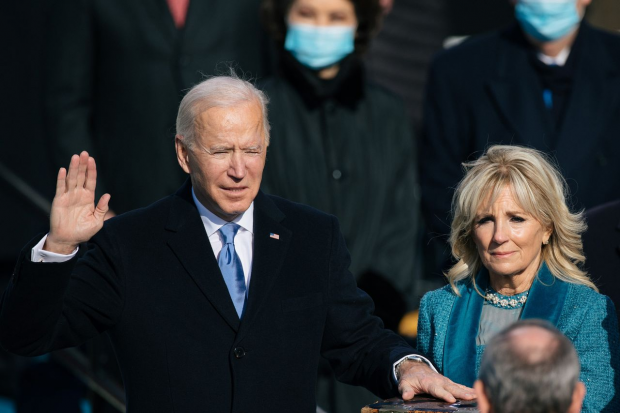Six States and Conservative Groups Sue Biden Administration Over New Title IX Rule, Alleging Unlawful Overreach
By Joy LiwanagThe Biden administration's recent overhaul of the Title IX rule, aimed at bolstering protections against sex-based discrimination in education, has ignited a firestorm of controversy.
Six states and several conservative advocacy groups have filed lawsuits, alleging that the new rule represents an unlawful expansion of federal authority and undermines the original intent of Title IX. At the heart of the dispute are changes to the definition of sex-based discrimination to include sexual orientation and gender identity, as well as alterations to the rules governing due process in misconduct cases.

(Photo : WIKIMEDIA COMMONS / U.S. Commission on Civil Rights)
Expanding the Definition of Sex-Based Discrimination
One of the most contentious aspects of the new Title IX rule is its expanded definition of sex-based discrimination. While Title IX was originally intended to protect against discrimination based on biological sex, the Biden administration's rule extends these protections to include sexual orientation and gender identity. Supporters argue that this update is necessary to ensure that LGBTQ+ students are fully protected under the law. However, opponents contend that this interpretation goes beyond the text and intent of Title IX, which was enacted in 1972 to address gender disparities in education.
The plaintiffs in the lawsuits, which include states like Idaho, Louisiana, Mississippi, and Montana, as well as conservative advocacy groups like the Defense of Freedom Institute (DFI), argue that the expanded definition of sex-based discrimination will have far-reaching consequences. They claim that it will lead to the elimination of gender-specific facilities, such as restrooms and locker rooms, and could potentially infringe on the rights of students who identify with traditional gender norms. Additionally, they argue that the new rule will create confusion and uncertainty for schools and educators, who may struggle to comply with the complex regulations.
Due Process Concerns
Another major point of contention in the lawsuits is the impact of the new Title IX rule on due process rights in misconduct cases. The Biden administration's rule includes several changes to the rules governing how schools must handle allegations of sexual misconduct, including requiring a live hearing and allowing for cross-examination of parties involved. While these changes are intended to strengthen protections for survivors of sexual assault, critics argue that they could have unintended consequences.
The plaintiffs in the lawsuits, which include states like Alabama, Georgia, Florida, and South Carolina, as well as advocacy groups like the Independent Women's Forum and Parents Defending Education, argue that the new rules will limit due process rights for those accused of misconduct. They claim that the requirement for live hearings and cross-examination could discourage survivors from coming forward and could lead to unfair outcomes for the accused. Additionally, they argue that the new rules will impose significant financial and administrative burdens on schools, which may struggle to comply with the new requirements.
Legal and Political Implications
The legal battle over the new Title IX rule is likely to have significant implications for the future of education policy and LGBTQ+ rights in the United States. The outcome of these lawsuits could determine the scope of federal authority in education and could shape the way that schools across the country handle allegations of sexual misconduct. Additionally, the lawsuits could have broader implications for the interpretation of civil rights laws, particularly as they relate to gender identity and sexual orientation.
From a political standpoint, the lawsuits represent a broader clash between conservative and progressive visions of education policy. The Biden administration's overhaul of the Title IX rule is seen as a key part of its efforts to promote LGBTQ+ rights and combat sexual misconduct on college campuses. However, conservative critics argue that these efforts are an example of federal overreach and represent an infringement on the rights of states and individuals.
The legal battle over Biden's new Title IX rule is likely to be a long and contentious one. The outcome of these lawsuits could have far-reaching implications for education policy, LGBTQ+ rights, and the interpretation of civil rights laws in the United States. As the legal battle unfolds, it will be important to closely monitor developments and consider the broader implications of this important legal and political debate.
RELATED ARTICLE: Biden Administration Overhauls Title IX, Strengthening Protections And Redefining Procedures








